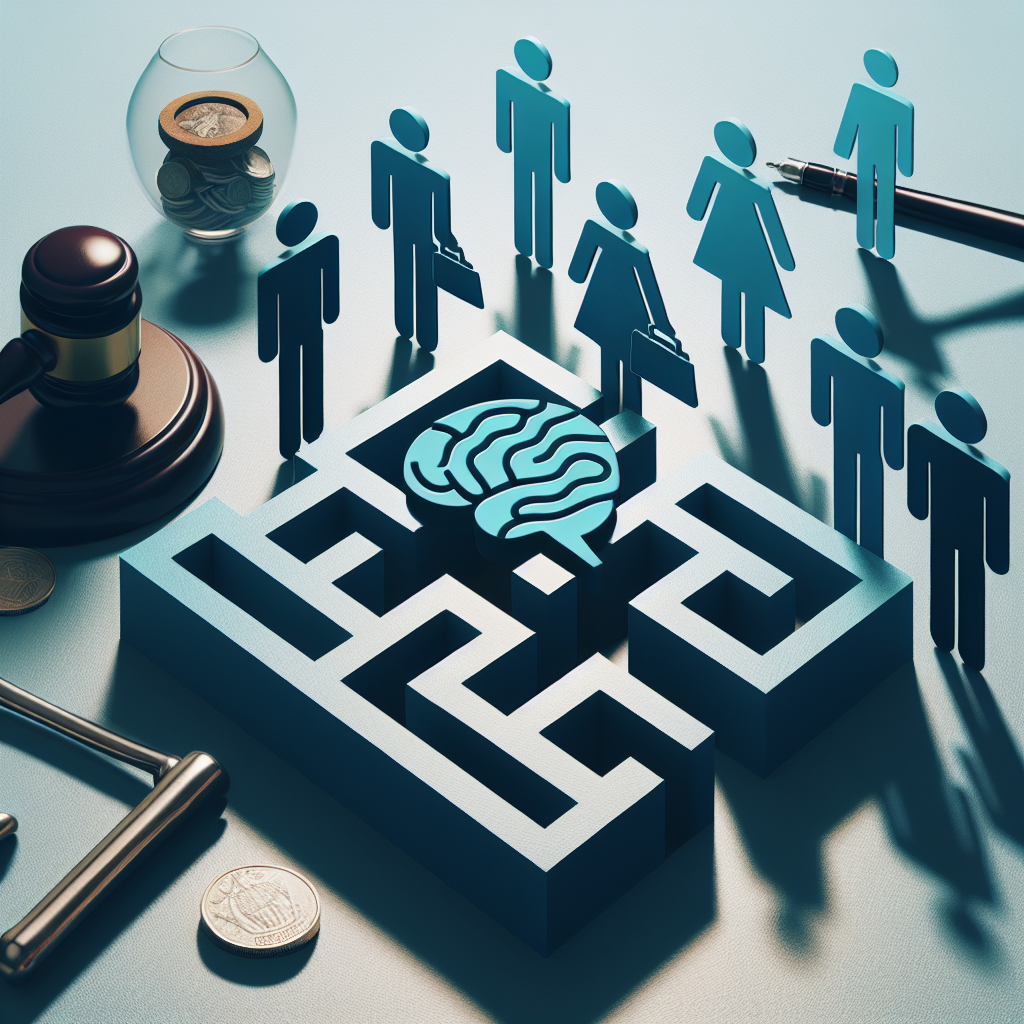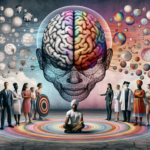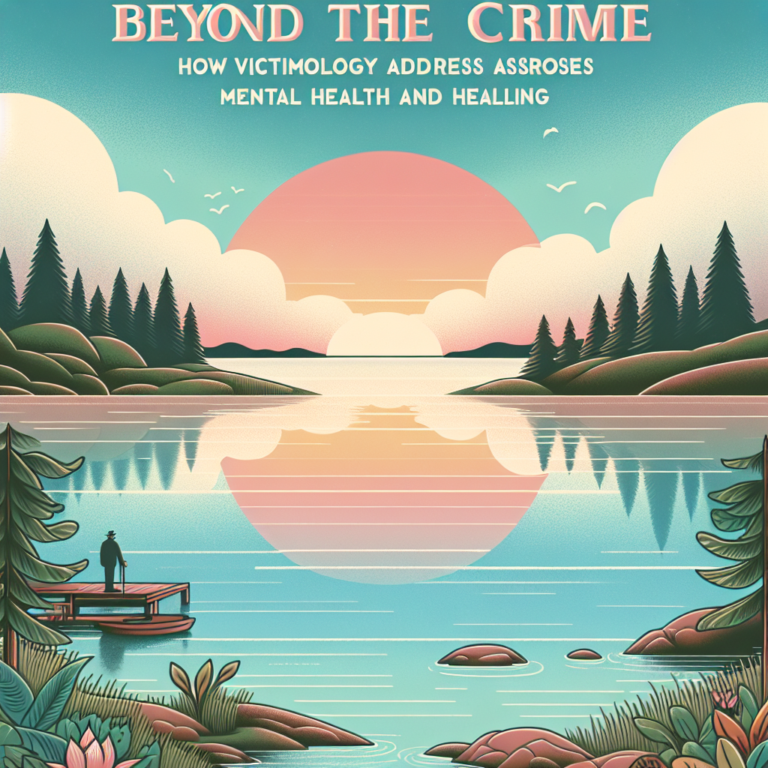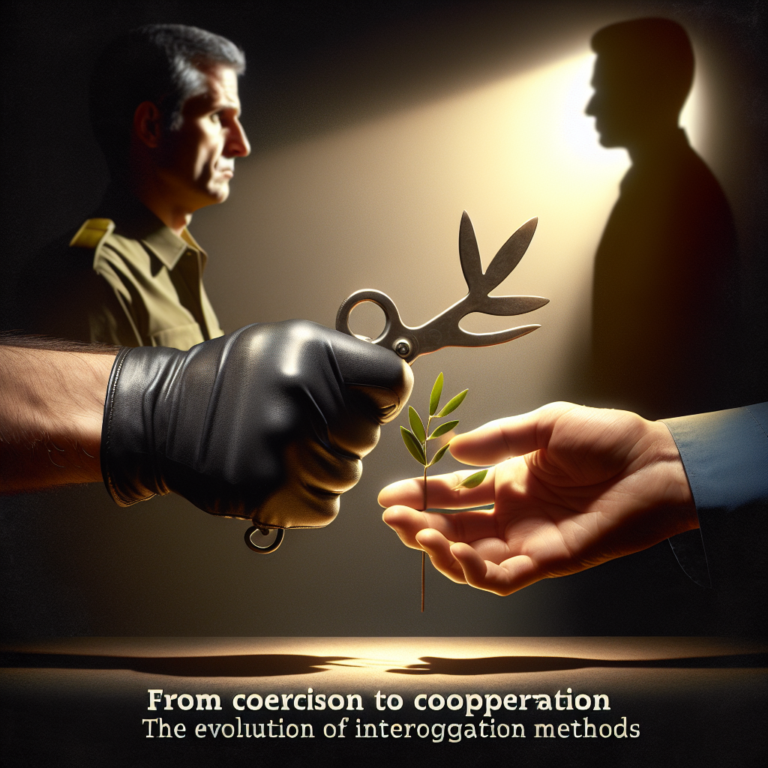
Introduction
In an ever-increasingly complex world, the intersection of mental health and the legal system is a crucial area of public concern. According to the World Health Organization, approximately one in four individuals will experience a mental health issue at some point in their lives. This staggering statistic raises an urgent question: How do we navigate mental health and the legal system amid such challenges? The rise of specialized courts, designed to address the unique needs of individuals grappling with mental health issues, offers an innovative solution to this pressing problem.
In this article, we will explore the evolution, implementation, and growing impact of specialized courts, providing insights into how they help individuals not just navigate the legal system but also promote mental wellness and rehabilitation.
The Need for Specialized Courts
A Historical Overview
The legal system has traditionally been ill-equipped to handle cases involving mental illness. Courts focused largely on punitive measures often sidelined individuals whose actions were influenced by unresolved mental health issues. In the mid-20th century, as advocacy for mental health rights gained momentum, specialized courts emerged as a crucial intervention.
Why Specialized Courts Matter
Specialized courts play an essential role in improving outcomes for individuals with mental health challenges. By diverting cases away from conventional courts, they aim to:
- Reduce recidivism rates
- Provide tailored treatment plans
- Enhance public safety
With these objectives in mind, the rise of specialized courts has fundamentally reshaped how society addresses mental health within the legal framework.
Understanding Specialized Courts
Types of Specialized Courts
Mental Health Courts: Designed to divert individuals diagnosed with mental illnesses from the traditional criminal justice system into treatment programs.
Drug Courts: Although focused primarily on substance abuse, many participants also face co-occurring mental health disorders.
- Veterans’ Treatment Courts: Tailored to serve military veterans, these courts address both mental health and substance abuse issues.
Structure and Functionality
Typically, specialized courts operate with a team approach, integrating various components of the legal and health systems. Participants often meet with judges, caseworkers, and mental health professionals who collaborate to create individualized treatment plans tailored to each participant’s needs.
Table 1: Overview of Specialized Court Functions
| Court Type | Target Population | Key Features |
|---|---|---|
| Mental Health Court | Individuals with mental illness | Treatment plans, continuous support |
| Drug Court | Individuals with substance abuse | Rehabilitation focus, regular check-ins |
| Veterans’ Court | Military veterans | Tailored interventions, counseling services |
Real-World Application: Notable Case Studies
Case Study 1: The Manhattan Mental Health Court
Established in New York City, the Manhattan Mental Health Court has become a model for specialized courts nationwide. Since its inception in 2002, this court has focused on ensuring that individuals with mental health issues receive the necessary treatment and support.
Analysis
This court showcases the proven effectiveness of a collaborative approach, drawing insights from mental health practitioners and social workers by addressing not only the legal aspects but also the psychological needs of participants.
Case Study 2: Miami-Dade County Drug Court
Miami-Dade’s Drug Court has served as an important example of integrating mental health and drug rehabilitation. With roughly 60% of participants exhibiting co-occurring disorders, the program has successfully reduced recidivism and offered insights into effective treatment strategies.
Analysis
This case underlines the need for specialized courts to address overlapping issues, fostering a holistic approach to treatment that is vital in promoting long-term recovery.
Case Study 3: Los Angeles County Veterans’ Treatment Court
With a focus on veterans, this court aims to address the unique challenges that former service members face, including PTSD and substance use disorders. By providing support and resources specifically designed for veterans, the court has changed lives and reduced recidivism rates significantly.
Analysis
This court’s specialized focus illustrates the importance of tailoring interventions based on the unique backgrounds and experiences of participants, highlighting the role that empathy and understanding play in judicial processes.
The Impact of Specialized Courts
Reducing Recidivism
Studies reveal that individuals who participate in specialized courts show lower rates of re-arrest compared to those processed through traditional systems. For instance, a report from the National Center for State Courts indicated that participants in mental health courts had a re-arrest rate 30% lower than their counterparts.
Promoting Mental Health
Beyond legal benefits, specialized courts prioritize mental health rehabilitation, leading to overall improvements in participants’ quality of life. This multifaceted approach has resulted in healthier communities and lower incarceration costs.
Improving Public Safety
By focusing on rehabilitation over punishment, specialized courts contribute to safer neighborhoods. When individuals receive treatment instead of punitive sentences, they are less likely to engage in behaviors that threaten public safety.
Overcoming Challenges
Stigma and Public Perception
One of the significant hurdles that specialized courts face is the societal stigma around mental health. It is crucial to educate the public that mental health issues are not synonymous with criminal behavior but rather require understanding and appropriate intervention.
Funding and Resources
In an age of budget cuts, specialized courts often compete for scant resources. Advocacy for increased funding and support is vital for ensuring that these courts can continue their important work effectively.
Legal Framework Limitations
Navigating mental health within the legal system comes with regulatory challenges. The legal framework must adapt to the evolving landscape of mental health awareness and treatment options to stay relevant.
Future Directions for Specialized Courts
Technological Advancements
Emerging technology can support specialized courts through telehealth options, data analytics, and improved access to resources. Leveraging digital tools can streamline case management, making the process more efficient.
Expanding Accessibility
Expanding the reach of specialized courts into underserved communities can lead to significant improvements in legal outcomes and mental health support for individuals who need it most.
Interdisciplinary Collaboration
Creating partnerships between legal entities and mental health organizations will expand available resources and improve service delivery.
Conclusion
Navigating mental health and the legal system: The rise of specialized courts represents a transformative movement toward understanding and rehabilitating individuals impacted by mental health issues. By promoting treatment over punishment, these courts signal a significant shift in societal attitudes toward mental illness.
The journey toward understanding mental health within the legal framework is not just the responsibility of legal professionals or mental health advocates; it requires the collective efforts of society to break down barriers, reduce stigma, and foster a culture of compassion. As we look to the future, the continued development of specialized courts holds the promise of a more inclusive and empathetic legal system.
FAQs
1. What are specialized courts?
Specialized courts are judicial systems created to address specific issues, such as mental health or substance abuse, focusing on rehabilitation and support rather than traditional punitive measures.
2. How do specialized courts differ from traditional courts?
Unlike traditional courts that often emphasize punishment, specialized courts aim to connect offenders with treatment and support services tailored to their needs.
3. What types of specialized courts exist?
Common types include mental health courts, drug courts, and veterans’ treatment courts, each tailored to specific populations and issues.
4. How effective are specialized courts in reducing recidivism?
Research indicates that individuals involved with specialized courts often experience lower rates of re-arrest, promoting both public safety and mental health recovery.
5. Are there concerns about funding for specialized courts?
Yes, funding can often be a challenge for specialized courts, demanding advocacy and public support to ensure adequate resources for effective operations.
By understanding and engaging with the theme of Navigating Mental Health and the Legal System: The Rise of Specialized Courts, we contribute to a future that prioritizes mental well-being and rehabilitation, encouraging all to participate in this vital conversation.












